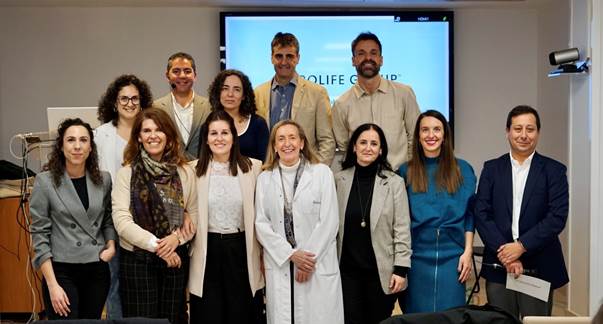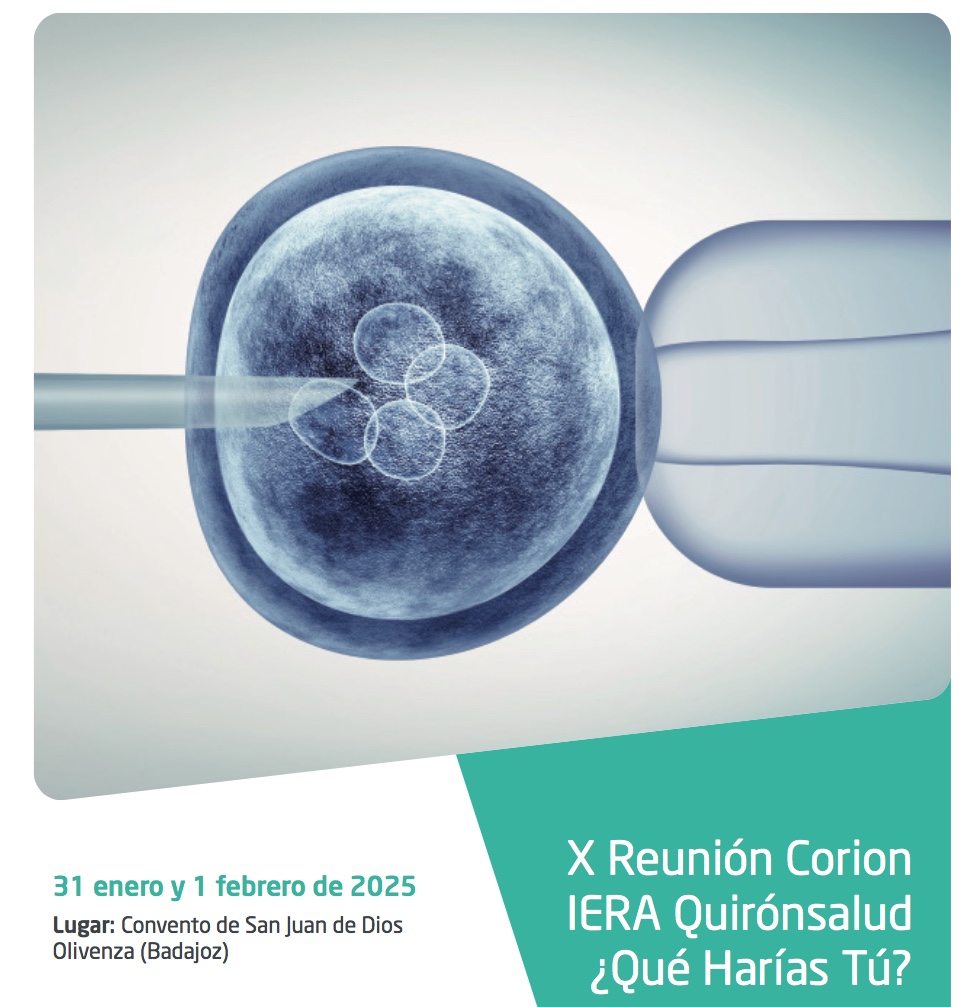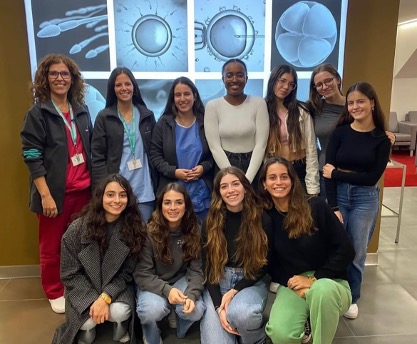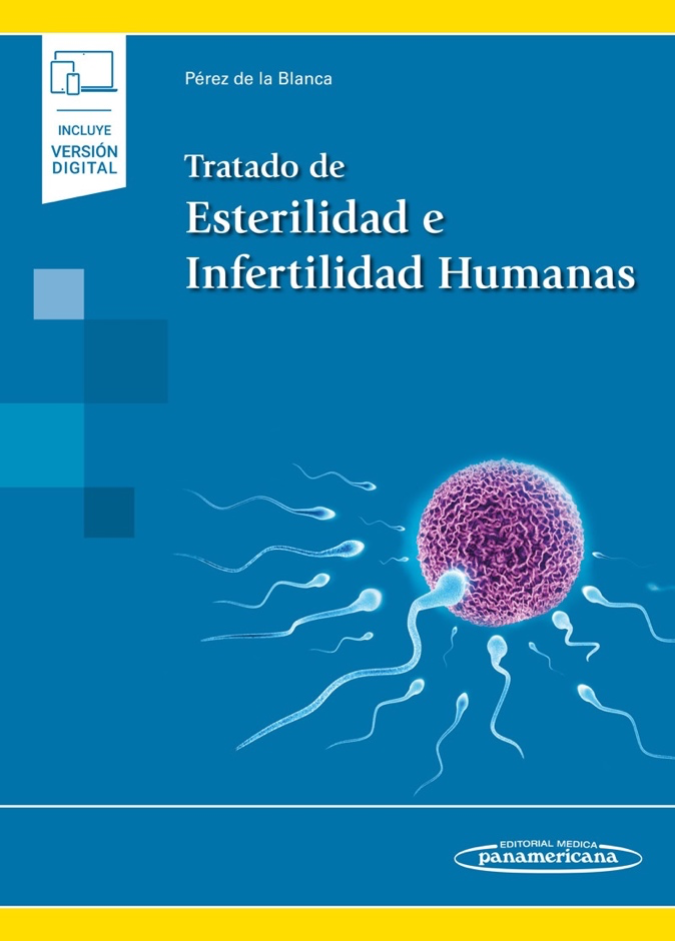IERA Quirónsalud celebrates the 25th anniversary of the first birth through in vitro fertilization in Extremadura
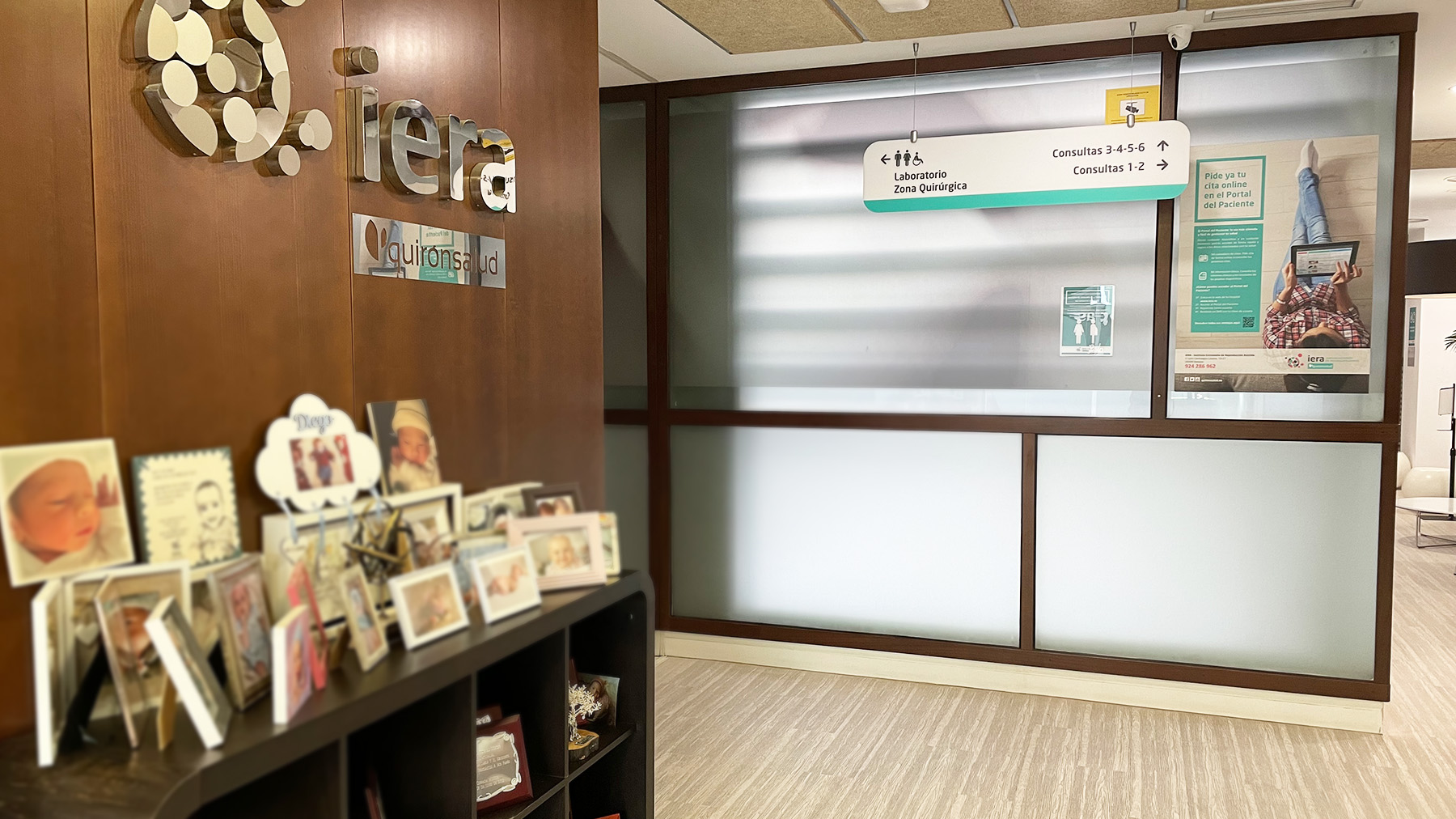
Since then, it is estimated that IERA has accompanied women in around 5,000 pregnancies, with a success rate that has risen from 20% to nearly 50%.
With 200 births per year, the Extremadura Institute of Assisted Reproduction is responsible for 3% of the region’s birth rate.
Badajoz, September 29, 2025. Tomorrow, September 30, the first child born through in vitro fertilization (IVF) in the region turns 25. To mark this special occasion, the Extremadura Institute of Assisted Reproduction (IERA Quirónsalud) has organized a series of activities to be held over the coming weeks, aiming to highlight the importance of this milestone for many families in the region and to continue raising awareness of the advances being made in assisted reproduction techniques.
Doctors Santiago Álvarez, scientific director of the center, and José Antonio Domínguez, medical director, proudly recall that first IVF birth and all the work that led up to it:
“In 1998, the IERA team set out to achieve this important biomedical milestone for our region, so that patients could have this opportunity without having to leave Extremadura.”
“Taking on this technological and clinical challenge and seeing it achieved a couple of years later meant showing both ourselves and the region that initiatives can indeed be accomplished,” recalls Dr. Álvarez.
Extremadura witnessed the birth of its first IVF baby on September 30, 2000, 16 years after the technique was successfully performed for the first time in Spain.
5,000 pregnancies
Since that first birth, doctors estimate that IERA Quirónsalud has accompanied women in around 5,000 pregnancies.
“It is important to highlight that about 200 babies are born each year in the region thanks to the work we do at the center, which represents approximately 3% of all births in Extremadura,” they comment. This represents a significant contribution to the regional birth rate and, above all, a safe alternative for families.
30% higher success rate in treatments
Over this quarter-century, technological changes and clinical advances have significantly increased the success rate of assisted reproduction techniques, while also making them more comfortable for patients.
“When we started, the success rate of fertilization was estimated at 20%, meaning that two out of ten women who came to IERA Quirónsalud to become mothers succeeded. Even so, both the team and the patients accepted it and we were relatively satisfied,” they explain.
“Now the success rate is close to 50%. The changes over these 25 years have been astonishing—there are hardly any other disciplines advancing at this pace.”
Among these advances, the most significant have taken place in the field of genetics, as it is now possible to better diagnose the causes of infertility. They also highlight tests that allow for the selection of embryos that are not carriers of diseases or chromosomal abnormalities.
In any case, as Dr. Santiago Álvarez emphasizes, “assisted reproduction is moving forward very quickly, and its future is surprising even for us professionals.”
According to the scientific director of IERA Quirónsalud, advances in this field represent milestones that could bring IVF not only to patients facing infertility issues but also to fertile individuals who wish to avoid transmitting diseases to their offspring.
Commemorative event
To celebrate this 25th anniversary, the Extremadura Institute of Assisted Reproduction will hold a commemorative event in November with the participation of professionals, patients, and collaborators who have been part of IERA Quirónsalud over the past 25 years. The event will also feature a keynote lecture by an expert in assisted reproduction, yet to be confirmed.
In addition, throughout October, a campaign will be carried out for women interested in learning about their ovarian reserve status, offering them a free ultrasound and hormonal assessment.
About Quirónsalud
Quirónsalud is Spain’s leading healthcare group and, together with its parent company Fresenius-Helios, also a leader in Europe. In addition to its activity in Spain, Quirónsalud is also present in Latin America. Altogether, it has more than 50,000 professionals across more than 180 healthcare centers, including 57 hospitals with over 8,000 hospital beds. It boasts the most advanced technology and a highly specialized team of internationally renowned professionals.
Its centers include the Fundación Jiménez Díaz University Hospital, Teknon Medical Center, Ruber Internacional, Quirónsalud Madrid University Hospital, Quirónsalud Barcelona Hospital, Dexeus University Hospital, Policlínica Gipuzkoa, General University Hospital of Catalonia, Quirónsalud Sagrado Corazón Hospital, among others.
The Group is actively involved in teaching (ten of its hospitals are university-affiliated) and in medical-scientific research (with the FJD Health Research Institute, accredited by the Spanish Secretariat of State for Research, Development, and Innovation).
Furthermore, its healthcare service is organized into transversal units and networks that optimize the accumulated experience across its centers and the clinical application of its research. Quirónsalud is currently developing numerous research projects across Spain, and many of its centers are conducting pioneering work in fields such as oncology, cardiology, endocrinology, gynecology, and neurology, among others.

